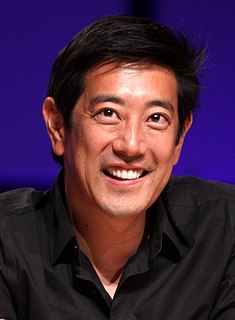A Quote by Chris Hardwick
I made a lot of changes in my life between my twenties and thirties, and it all sort of revolves around how I think people with nerdier brains tend to problem-solve and approach things differently then "norms."
Related Quotes
People have been trying to do kind of natural language processing with computers for decades and there has only been sort of slow progress in that in general. It turned out the problem we had to solve is sort of the reverse of the problem people usually have to solve. People usually have to solve the problem of you're given you know thousands, millions of pages of text, go have the computer understand this.
When people come to you with problems or challenges, don't automatically solve them. As a mama bear, you want to take care of your cubs, so you tend to be protective and insulate them against all those things. But if you keep solving problems for your people, they don't learn how to actually solve problems for themselves, and it doesn't scale. Make sure that when people come in with challenges and problems, the first thing you're doing is actually putting it back to them and saying: "What do you think we should do about it? How do you think we should approach this?".
In my twenties, I thought it was getting a sitcom. Then I got a sitcom pilot in my early thirties, and realized I didn't want it. It was a rude awakening. When it wasn't picked up, I was crushed, but then in retrospect I've made two films and produced three one-man shows since then. It's the luckiest thing that happened in my life.
I think my style revolves around the philosophy that less is more, that simplicity is the ultimate sophistication. That goes for my taste in design and in clothes, and even affects the way I approach music. I'm all about keeping things simple, and minimal, but being able to convey something powerful through that approach.
All my other movies have the same process. Same approach. Same amount of changes. Everything. Things being made up on the fly. Changing things around. Firing and recasting. Constantly, constantly, in chronological sequence, not really knowing how this is going to end up. That is the only dogmatic approach I take towards everything.
If we want to impact hundreds - or millions - of people, we have to do things differently. If we look at the problem as an infrastructural problem, we cannot make an impact because it requires a lot of effort. But when we convert this problem into a knowledge problem, suddenly the problem is manageable.


































